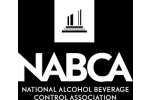What is now hitting our streets and what can we expect in communities in the opioid world.
Sessions
New and Emerging Opioid Trends and Other Drug Trends
-Speakers
Shifting Tides: The Continued Evolution of the “Fourth Wave” of America’s Overdose Crisis
-Encouraging reports suggest that the tsunami of fentanyl-involved overdose deaths in the U.S. may finally be receding after rising for more than a decade. Fentanyl detection rates have fallen somewhat but fentanyl-associated polysubstance use remains a significant—and still growing—issue that continues to evolve. In addition, overdose mortality data increasingly point to the co-involvement of stimulants (i.e., methamphetamine and cocaine) in fentanyl-related deaths, which has been referred to as the “fourth wave” of the overdose epidemic.
Considering the current and emerging opioid and stimulant use patterns, this presentation will discuss trends in fentanyl positivity rates across the nation and will also focus on the co-detection of methamphetamine, cocaine, and prescription opioids in the population using fentanyl. In addition, positive changes in stimulant use in that same population from more recent times (2023 to 2024) will be compared and discussed. This presentation will also touch on the rising tide of heroin use, particularly in those using fentanyl, and consider recent positivity rate changes. Finally, the most co-detected drugs consumed in the population using fentanyl, over both time and geographical location, will be highlighted.
Speakers
The Right Door First: How Assessment Centers Connect Youth to Care, Not Systems
-
Youth experiencing substance use challenges often encounter systems that are reactive, fragmented, or punitive—pushing them further into cycles of justice involvement or crisis. The Assessment Center Framework offers a powerful alternative: a coordinated, cross-system response that diverts youth from formal processing and connects them to individualized, developmentally appropriate supports. This session will introduce the Assessment Center approach and its role in early identification, family engagement, and service navigation for youth facing substance use, mental health, or behavioral challenges. Participants will gain insight into how Assessment Centers serve as a trusted, trauma-informed front door to care—especially for youth who might otherwise be arrested, suspended, or overlooked.
Learning Objectives:
- Describe the Assessment Center Framework and how it provides a community-based alternative to justice system involvement for youth in crisis.
- Identify effective practices for using Assessment Centers to respond to youth substance use, including screening, service matching, and warm handoffs.
- Understand how cross-sector partnerships within Assessment Centers—including law enforcement, schools, and behavioral health—can reduce duplication and improve outcomes.
Speakers
Alcohol's Impact on Today's Youth
-According to the Centers for Disease Control and Prevention, excessive drinking kills more than 4,000 youths each year in the US, which equals ten youths per day. Alcohol is the most commonly used substance by teens in the US. In Illinois, we have seen a 62.5% increase in Retail Access and a 25% increase in Parent Supply for 8th-grade youth since 2018, according to the Illinois Youth Survey. In this interactive lecture-based workshop, we will discuss alcohol's impact on today's youth and how to determine the strategies or policies to implement to prevent use. We will also discuss incorporating partnerships to enhance strategies to prevent youth alcohol use.
1. At the end of this presentation, attendees will be able to identify strategies to reduce youth access to alcohol by using local data.
2. At the end of this presentation, attendees will be able to identify how to cultivate partnerships for sustainable solutions.
3. At the end of this presentation, attendees will be able to identify the latest alcohol products available to youth in today's market.
Speakers
From Kensington to Your Community: What Philadelphia’s Opioid Trends Reveal About What’s Coming Next
-Kensington, Philadelphia, has become a national focal point in the opioid crisis—its open-air drug markets, fentanyl-dominated supply, and devastating overdose rates offer a sobering preview of what many communities may face next. In this timely and eye-opening session, the presenters draw direct connections between what’s happening in Kensington today and the trends already emerging in cities, suburbs, and rural areas nationwide.
Through real-world examples, visuals, and current data, participants will gain a deeper understanding of how drug trafficking patterns, evolving street formulations, and shifting user behaviors in Philadelphia are predictive of what could soon be impacting their own neighborhoods. This presentation goes beyond headlines to equip attendees with the knowledge and strategies needed to respond effectively—before the crisis escalates locally.
Learning Objectives
By the end of this session, participants will be able to:
- Recognize the current opioid and polysubstance trends in Kensington, Philadelphia, including fentanyl analogues, xylazine, and counterfeit pills.
- Identify how these patterns have historically spread from high-impact areas to other parts of the country.
- Understand the role of distribution networks, supply chain shifts, and adulteration in accelerating community risk.
- Evaluate the public health, safety, and community-level consequences of these drug trends.
Apply practical prevention, enforcement, and community engagement strategies to prepare for and mitigate emerging threats.
Speakers
Tripping Through the Maze of the Psychedelic Craze - Psychedelics Identification, Effects, and Emerging Trends for Law Enforcement
-
This intermediate-level course is designed to equip law enforcement, prosecutors, treatment providers, and educators with essential knowledge of psychedelic substances—both traditional and emerging—for use in field response, investigation, and policy awareness. Psychedelic drugs have existed for millennia and have traveled a rich historical journey. In their early use, they were considered sacred by some cultures, often for spiritual and healing rituals, while being demonized by others for their mind-altering effects. Today, they are often recommended to treat an ever-lengthening list of problems, including depression, anxiety, addiction, PTSD, and chronic pain. As the psychedelic interest grows and we enter a “psychedelic renaissance”, many counties and states are making these substances more accessible for people who want to explore their perceived benefits, while others are interested in their hallucinogenic effects. This workshop explores the origin, cultural background, physiological and psychological effects, and physical identifiers of a broad range of psychedelics, including both classic compounds and new synthetic analogues. Upon completion, attendees will have a comprehensive understanding of how to recognize psychedelic substances and their effects, respond to related incidents with informed strategies, and adapt to the evolving legal and cultural landscape surrounding these drugs.
Learning Objectives:
Upon completion of this training, attendees will be able to:
- Identify many of the psychedelics, including their appearance, packaging, odors, paraphernalia, and behavioral indicators.
- Have a better understanding of the pharmacological and psychological effects, including altered perception, risk factors, and overdose scenarios caused by psychedelics.
- Have a better understanding of the growing intersection of psychedelics and mental health care and how therapeutic use is influencing public policy and law enforcement roles.
Speakers
Comprehensive Student Assistance Programs
-
This presentation will discuss the development, implementation, and benefits of a comprehensive Student Assistance Program. This model, which includes a robust program of prevention, early intervention, treatment, and recovery, creates opportunities for many students to obtain support before issues emerge and/or progress to significant illness. These efforts have long-term impacts on overall health and well-being, as well as improved academic success, which can be supported with data. For students who have identified/diagnosable substance use issues, this comprehensive model reduces barriers to accessing treatment in the community (transportation, availability, funding, etc.) and reduces disruption to academics for appointments in the community. A comprehensive system also reduces stigma and increases help-seeking behavior, which can shorten the time frame students go without care. When services are tied to the school, the burden is lessened on parents, and services can be better coordinated between systems.
Services delivered within the school building allow for better coordination between systems and encourage alignment of educational and overall student well-being, serving the whole child. School systems also benefit from increased student attendance when services can be accessed at the school, both by reducing time away from school for appointments in the community and school bonding when the full spectrum of students' needs are met in the school building. School climate and culture is improved when a robust system of behavioral health and well-being is implemented. Students who receive necessary care show an increase in academics and readiness to benefit from instruction and engage better in classes.
Objectives:
1. Introduce participants to the Student Assistance Program framework and how it is applied within school settings to address substance use across tiers of support
2. Participants will understand how this framework can be used to structure supports and services that are responsive to the individual needs of students
3. Participants will learn about the efforts undertaken across the Capital Region ESD 113 area to develop and sustain Student Assistance Programs and the impact it has had on students.
Speakers
Toxic Cocktails: Fentanyl Analogues, Nitazene Contamination & Hidden Adulterants
-In an era of evolving synthetic opioids, this advanced session offers critical insight into emerging threats—specifically fentanyl analogues, nitazenes, and concealed adulterants—and their high addiction potential. Participants will explore volatile drug trends, distinctive impairment characteristics, detection challenges, and operational implications. Through case studies and data-driven analysis, attendees will learn how dependence risks, hidden mixtures, and toxicological limitations influence enforcement strategies and forensic interpretation.
Who Should Attend:
- Law enforcement officers and supervisors managing field detection, impairment assessment, and opioid-related enforcement protocols.
- School and institutional administrators responsible for substance use response, policy setting, and safety planning.
- Forensic toxicologists, clinicians, and researchers specializing in synthetic opioid detection, drug trend surveillance, and investigations.
Key Features:
- Trend overview of synthetic opioids such as acetylfentanyl, furanylfentanyl, carfentanil, and potent nitazene analogues like isotonitazene and protonitazene, many of which exhibit potency and addiction risk far exceeding fentanyl.
- Addiction potential: discussion of the high dependence and withdrawal severity linked to nitazenes and analogues, including their reinforcement through use and association with clusters of overdose deaths.
- Impairment traits and behavioral profiles: understanding signs and duration of intoxication with emerging opioids and how they differ from traditional presentations.
- Toxicological challenges: the limitations of standard screens, requirements for advanced assays and mass-spec, and the prevalence of undetected nitazene contamination.
- Contamination and adulteration issues: risk from nitazenes mixed unknowingly in heroin, counterfeit pills, or stimulants, complicating impairment detection and treatment responses.
- Operational insights: guidance on improved awareness, evidence collection procedures, naloxone use (often higher doses), and law enforcement adaptations in unpredictable opioid landscapes.
Learning Outcomes:
By session’s end, participants will be able to:
- Define the pharmacology, high potency, and addiction potential of fentanyl analogues and nitazene opioids.
- Recognize impairment characteristics and withdrawal indicators that distinguish emerging opioids from other substances.
- Identify toxicology limitations and recognize when traditional testing may miss significant opioid exposure.
- Anticipate risks posed by adulterated mixtures and evolving drug trends to strengthen enforcement and emergency response protocols.
Speakers
Tracking the Trends: Looking at Years of Marijuana and Hemp Oversight in Oregon and California
-The growing popularity of marijuana and hemp-derived products has led to a
proliferation of new products worldwide including numerous states in the U.S.
Proliferation has subsequently led to the lack of clear regulations for hemp-derived
products as well as misrepresentation regarding THC content and associated possible
harms. This presentation will explore two major reports, one from Oregon and one from
California, that tracked marijuana and hemp trends and assessed cannabis regulation
and market integrity legalization, which included compliance, potency accuracy, and
pesticide contamination. Additionally, both reports exposed widespread
misrepresentation in hemp-derived products, including deceptive labeling, unverified
potency claims, and the sale of intoxicating items marketed as hemp which indicate an
urgent need for better regulatory control and additional caution and education regarding
the consumption of marijuana and hemp-derived products.
Speakers
How Social Media and Vaping Drive a New Era of Teen Drug Use
-In today’s world, social media isn’t just shaping teen culture—it’s fueling a dangerous shift in youth drug trends. This session dives deep into how platforms like Snapchat, TikTok, and Instagram have become virtual marketplaces for nicotine, marijuana, counterfeit pills, and other substances, often hidden in plain sight. We’ll examine the latest social media trends that glamorize risky behavior, from viral vape tricks to drug-themed challenges, and how these trends normalize use while lowering perceived risk.
We’ll also address the growing crisis of sextortion—where predators use social media to exploit teens for explicit content or money—and its alarming connection to substance abuse, mental health struggles, and overdose cases.
Drawing from real-world law enforcement cases, school incidents, and prevention efforts, this session will equip educators, parents, and professionals with the tools to recognize warning signs, understand the digital drug economy, and take proactive steps to protect today’s youth from both online exploitation and drug harm.










